Being raised in a home where unconditional love was taught and modeled (along with the humanness of not always doing it very well) I was exposed to a sense of wholeness from an early age. I was assured that my inner self wasn’t broken or in need of anything in order to be complete. There is profound beauty and abundance in this way of looking at life that gave me a leg up as I competed in sports and later went into business for myself. I learned not to measure my events or days just by the winnings or losses – my self-worth wasn’t at stake.
My definition of wholeness evolved after experiencing several failures and disappointments. In addition to innate completeness, I learned that wholeness also meant that which could hold opposites as both “right…” at least partially. Part of me didn’t want to accept this aspect because it sounded paradoxical and therefore uncomfortable and I had to make friends with that part. For example I learned that those who see things very differently than I did had as much right to their story and their perspective as I did – and building empathy for them was the best thing I could do to move forward without anxiety, stress or resentment for outcome.
I believe that as the complexity of issues increases, the ability to hold paradox becomes paramount. Leaders who embrace this sense of wholeness as the platform from which to begin problem solving will find more satisfying, sustainable results and larger scale problems will become solvable. This is the leadership of the future.
How does wholeness appear to you and how does it inform your leadership?


